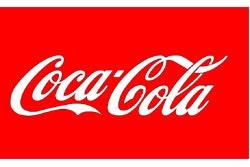SALEM, Ore. (AP) — The director of the Oregon Liquor Control Commission announced his retirement Tuesday after seven months on the outs with Gov. John Kitzhaber.
Steve Pharo's announcement comes two days before the liquor commission holds its first meeting with the balance of power tipped to Kitzhaber appointees. Pharo has worked at the OLCC for 18 years, the last six as the director.
A Kitzhaber aide asked Pharo to resign earlier this year and he refused, saying he reports to the five-member liquor commission rather than the governor. In April, when Kitzhaber had appointed only two of the five commissioners, they abruptly cancelled plans to vote on firing him. A third Kitzhaber appointee, former state Rep. Rob Patridge of Medford, was confirmed by the Senate last month.
"I value Steve's years of service and I wish him well in his retirement," said Cassandra Skinner, chair of the liquor commission.
Skinner declined to comment when asked whether Pharo would have been fired if he hadn't retired. Patridge could not immediately be reached.
Kitzhaber aides have complained about Pharo's leadership but haven't said specifically why they want him out.
"The record is clear that the governor wanted a change in OLCC leadership," Kitzhaber spokeswoman Amy Wojcicki said. "He looks forward to working with the commission on a replacement."
An OLCC spokeswoman said Pharo declined to comment. In a statement, he said he's treasured his 18 years at the liquor commission. An agency news release says Pharo encouraged liquor retailers to make improvements in their stores and "helped foster growth in Oregon businesses, including the burgeoning craft distillery industry which now accounts for 12 percent of all liquor sales."
His last day is Nov. 16.
The OLCC maintains a tight grip on liquor sales in Oregon, but talk of privatizing the system has heated up since voters in Washington state decided to go that route. The OLCC has aggressively defended the state monopoly on liquor sales but budged slightly since the Washington law was enacted. Commissioners approved a pilot program to allow more outlets to stock beer and wine and to make it easier for big grocery chains to sell hard liquor.






















